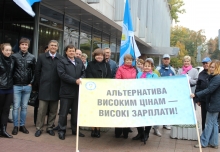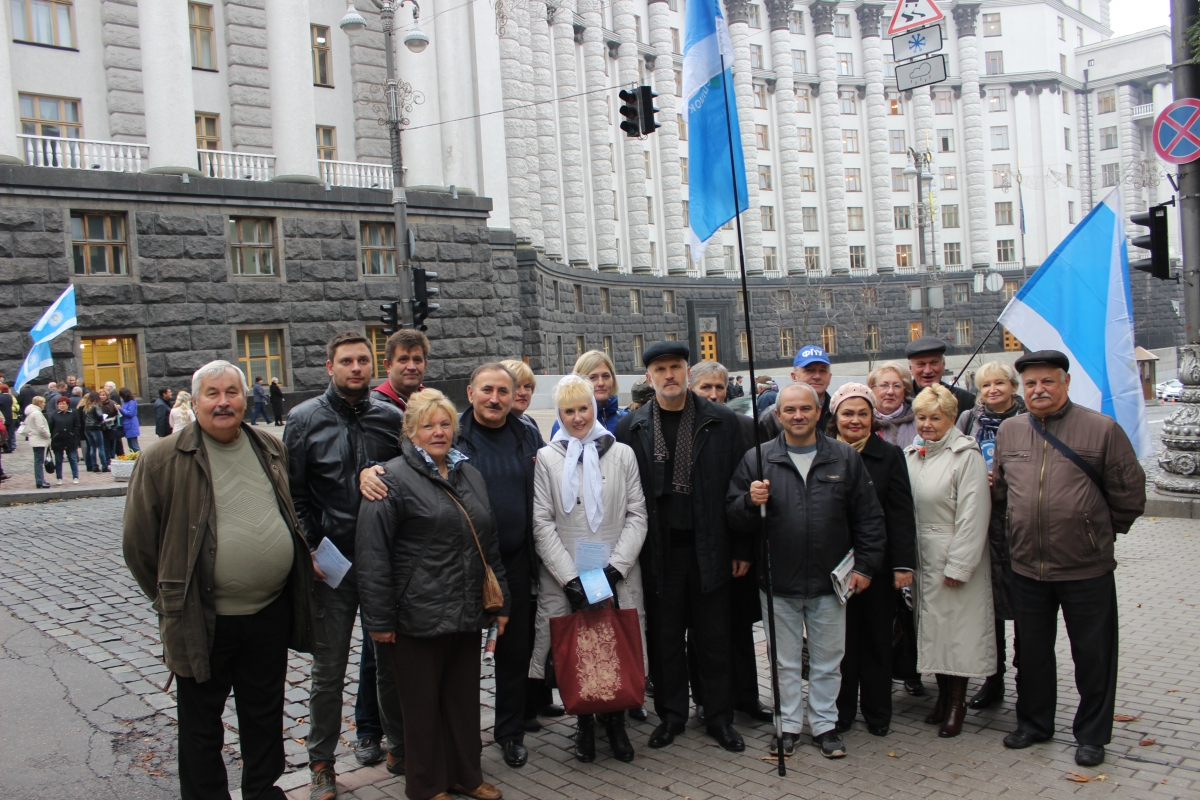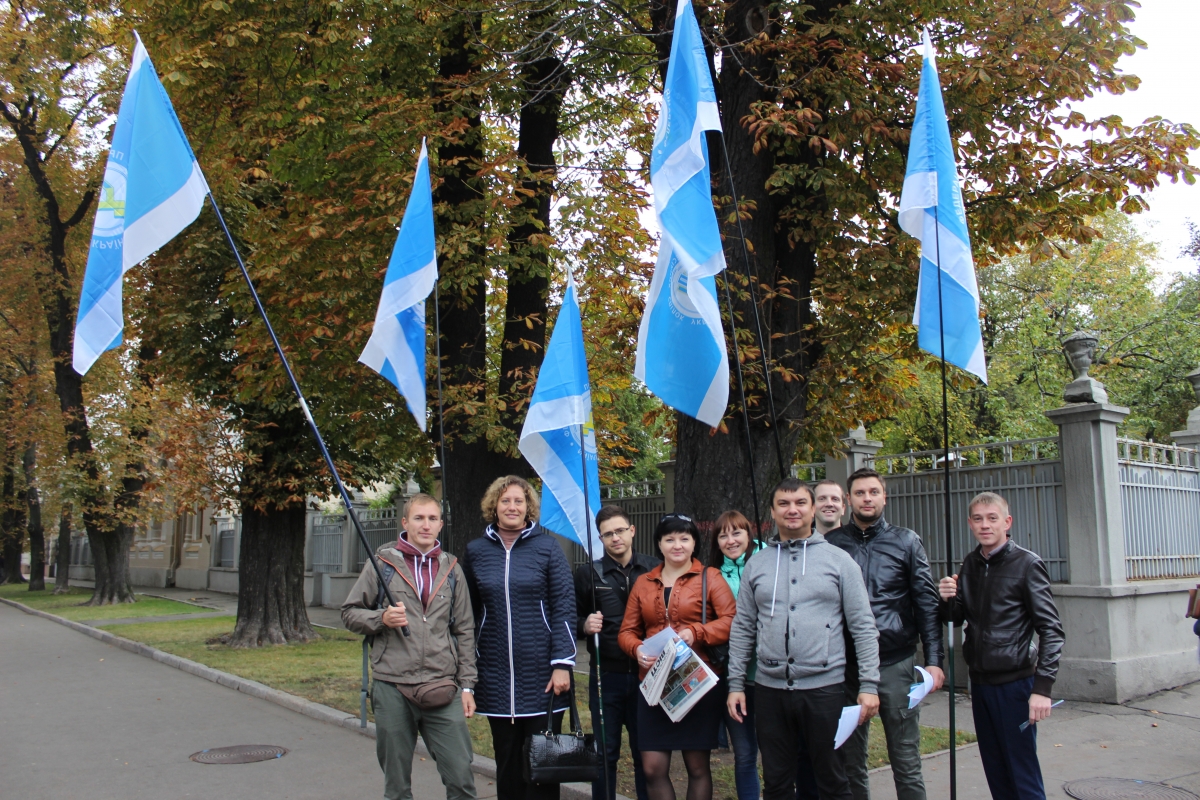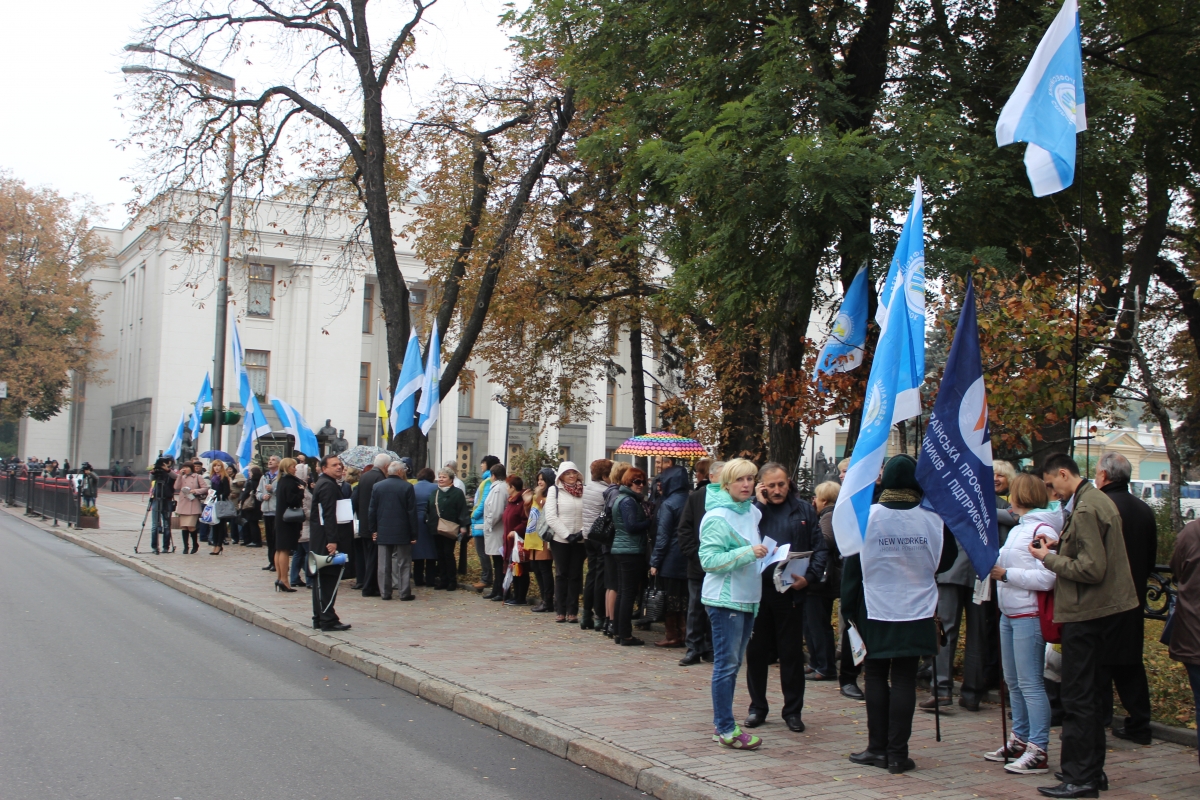Ukranian unions celebrate World Day for Decent Work

The aim of the pickets was to draw the attention of the executive authorities to decent work challenges in Ukraine and to inform the broad public about trade union demands and actions.
 Trade unionists from the FPU and its affiliates picketed the buildings of the Verkhovna Rada, Ukraine’s parliament.
Trade unionists from the FPU and its affiliates picketed the buildings of the Verkhovna Rada, Ukraine’s parliament.
They handed out a special issue of the newspaper “Trade Union News”, leaflets on decent work and explained to passersby that decent work means, above all, decent and timely pay, new high-tech jobs, protecting workers’ rights to join trade unions and collective bargaining. It includes the elimination of discrimination, the abolition of child and forced labour and the creation of social protection systems for the unemployed.
Picketers held slogans such as “Trade Unions for Decent Work and Welfare”, “High prices? – High wages!” and “Ukrainian Workers Deserve European Wages”.
Addressing the participants of the pickets, FPU President Grygorii Osovyi highlighted a number of challenges in the labour market: unemployment, low wages, dangerous working condition, etc. He reconfirmed that Ukrainian trade unions would continue to struggle for higher, European level, wages.
 In the run up to the World Day for Decent Work and the International Day for the Eradication of Poverty the FPU Presidium adopted a statement outlining major trade union demands.
In the run up to the World Day for Decent Work and the International Day for the Eradication of Poverty the FPU Presidium adopted a statement outlining major trade union demands.
The FPU Presidium noted that in the last three years the Ukrainian labour market has lost 2 million people. Today, for every vacancy there are 43 unemployed. In the 1st quarter 2016, 3.8 million workers were employed in the informal economy, or 23.4% of the total workforce. The real wages decreased by 74.6% in 2014–2015. Every fifth worker is poor.

Therefore, the FPU urges:
- Verkhovna Rada of Ukraine to adopt the legislation on wages (draft laws Nos. 2533, 3438, 4900, 4900-1).
- President of Ukraineto support trade union legislative initiatives aimed at protecting social and economic rights of workers, in particular regarding:
- Substantial increase in wages in the face of rising prices and tariffs;
- Introducing sectoral augmentative ratios to minimum wage in the non-budget sphere;
- Ensuring timely payment of wages. - Government and employers:

- To accelerate structural and technological restructuring of the real economy in order to increase productivity and provide citizens with social and economic conditions that meet European standards;
- To create new modern and secure jobs that upgrade existing jobs in order to reduce unemployment among the economically active population, including young people;
- To intensify the activity of working groups on remuneration system reform and develop proposals on revision of natural gas prices in order to set them at the reasonable level;
- To increase wages, in particular by reducing the single social contribution rate in order to maintain solvency of the population in the face of rising gas, housing and utilities prices and tariffs;
- To clear wage arrears and prevent new wage arrears; - Trade unions of all levels to strengthen collective bargaining with employers on increasing wages.

